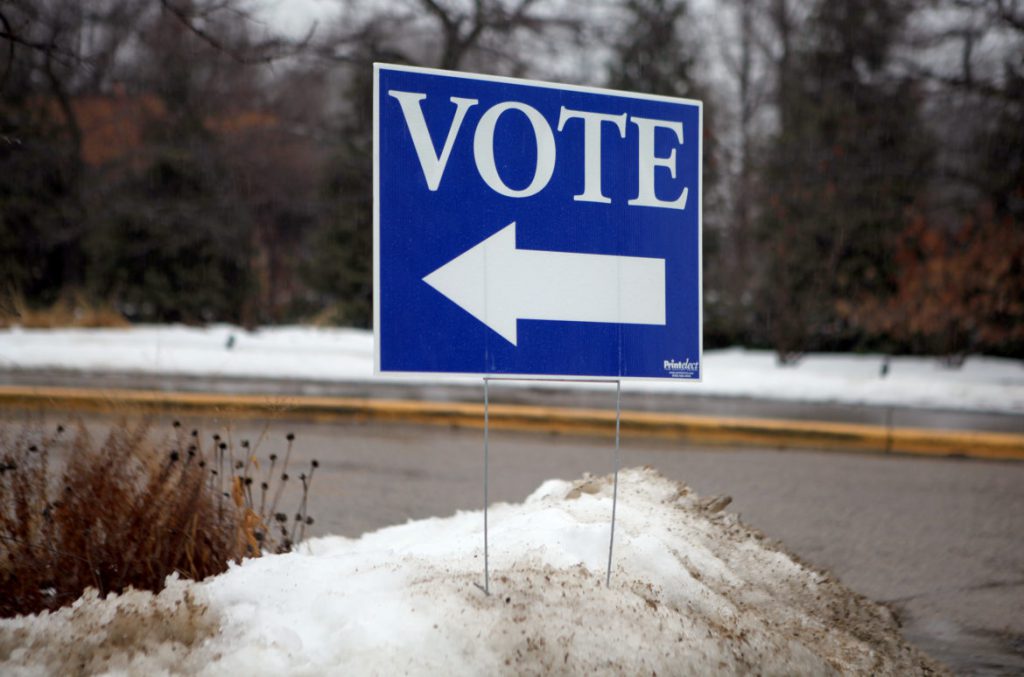Republicans Alienating Youth Vote
College voter suppression in Wisconsin, other states could lose those voters forever.
In Texas the early vote by youthful voters aged 18 to 29 is up by 610% this year. It’s up by 221% in Florida and 275% in North Carolina.
In 13 of 14 key states that may decide the presidency the youth share of the early vote is higher than it was in 2016, according to the Tufts University Circle (Center for Information and Research on Civic Learning & Engagement).
That is not good news for Republicans. The Fall Youth Poll by the Institute of Politics at Harvard University’s Kennedy School of Government found that voters aged 18 to 29 favored Democrat Joe Biden over Republican Donald Trump by 50% to 26 percent.
And they voted “overwhelmingly” for Democratic candidates, according to an analysis by Tufts University’s Circle. (That’s a very busy university.) And that was a shift for a state like Wisconsin, where the analysis found that under-30 voters supported Democrat Tony Evers by a 23-point margin over Republican Scott Walker, versus a four point margin for Democrat Mary Burke over Walker in 2014.
The problem Republicans have with younger voters is not exactly a news flash. A key point in the famous Republican “autopsy” after it the party lost the 2012 election was the need to do more outreach to younger voters, who saw the party as “racist, rigid, old-fashioned.”
But rather than broadening the Republican tent “to reach communities of color, women and young voters,” it made the situation worse by “erecting voting barriers for those very groups. Instead of enlarging the tent, the party has taken a chain saw to its center pole,” according to longtime Republican Benjamin L. Ginsberg, who worked on GOP campaigns for nearly four decades and 38 years. An expert in election law, Ginsberg co-chaired the bipartisan 2013 Presidential Commission on Election Administration, and wrote a column for the Washington Post castigating the party for its policy of suppressing votes.
No states have done more to suppress the college vote than Texas and Wisconsin, the New York Times reported:
“Texas bars students from registering until two months before their 18th birthday, the nation’s most restrictive rule.
“Wisconsin Republicans also have imposed tough restrictions…The state requires poll workers to check signatures only on student IDs, although some schools issuing modern IDs that serve as debit cards and dorm room keys have removed signatures, which they consider a security risk.
“The law also requires that IDs used for voting expire within two years, while most college ID cards have four-year expiration dates. And even students with acceptable IDs must show proof of enrollment before being allowed to vote.”
Republicans have argued that these restrictions, all added in the last decade in a long list of states, are needed to prevent voter fraud. But numerous studies have shown voter fraud is exceedingly rare. In Wisconsin Republicans have repeatedly failed to prove any fraud in court cases.
As Ginsberg put It: “The truth is that over all those years Republicans found only isolated incidents of fraud. Proof of systematic fraud has become the Loch Ness Monster of the Republican Party. People have spent a lot of time looking for it, but it doesn’t exist.”
In Wisconsin, Republican state senators were “giddy” over the prospect that the 2011 voter ID law would prevent some college students from voting, as a GOP legislative aide testified in court. We’ve now had nine years of such laws in place, making it harder for college students to vote. Did anger about that help to greatly increase the percent of young people voting against Walker in 2018?
A simple rule for Republicans to consider: when you target a group of people as the enemy, it’s something those people may never forget — every time they go to the polls.
If you think stories like this are important, become a member of Urban Milwaukee and help support real, independent journalism. Plus you get some cool added benefits.
More about the 2020 General Election
- Senator Agard Statement on Senator Knodl’s Continued Relitigation of the 2020 Presidential Election - Dane County Executive Melissa Agard - Aug 29th, 2023
- Report Calls For Criminally Charging State’s Fake Electors - Henry Redman - Dec 19th, 2022
- Vos Withdraws Subpoenas, Ends Gableman Probe - Henry Redman - Aug 30th, 2022
- Judge Blasts Gableman Probe, Deleted Records - Henry Redman - Aug 17th, 2022
- Vos Fires Gableman, Ends Election Probe - Shawn Johnson - Aug 14th, 2022
- Judge Orders Gableman To Pay $163,000 In Legal Fees - Rich Kremer - Aug 2nd, 2022
- Prosecute 2020 Fake Electors, Advocates Demand - Erik Gunn - Aug 1st, 2022
- Trump Calls For Nullification of Wisconsin’s 2020 Election - Henry Redman - Jul 12th, 2022
- Legal Fight Over Gableman Probe Keeps Growing - Shawn Johnson - Jun 30th, 2022
- Back In the News: Fake Elector Scheme Dogs Ron Johnson - Bruce Murphy - Jun 28th, 2022
Read more about 2020 General Election here
Murphy's Law
-
National Media Discovers Mayor Johnson
 Jul 16th, 2024 by Bruce Murphy
Jul 16th, 2024 by Bruce Murphy
-
Milwaukee Arts Groups in Big Trouble
 Jul 10th, 2024 by Bruce Murphy
Jul 10th, 2024 by Bruce Murphy
-
The Plague of Rising Health Care Costs
 Jul 8th, 2024 by Bruce Murphy
Jul 8th, 2024 by Bruce Murphy





















